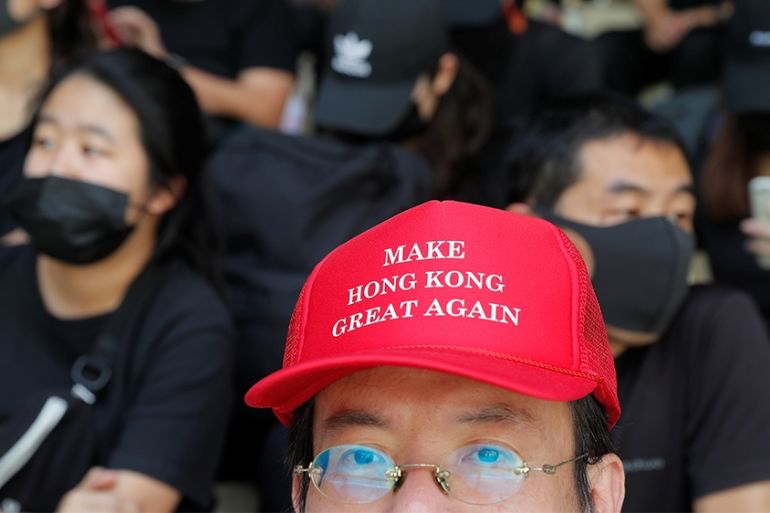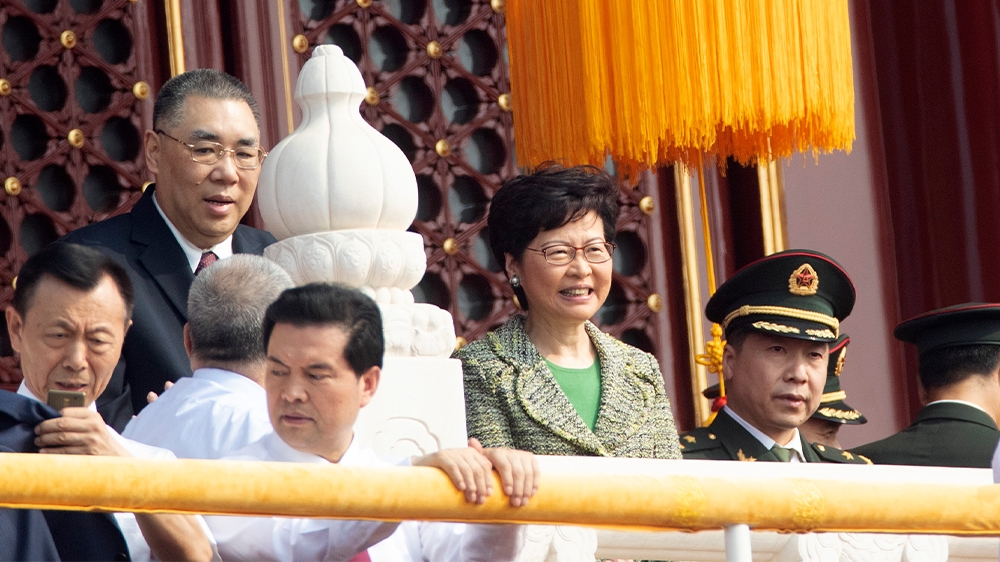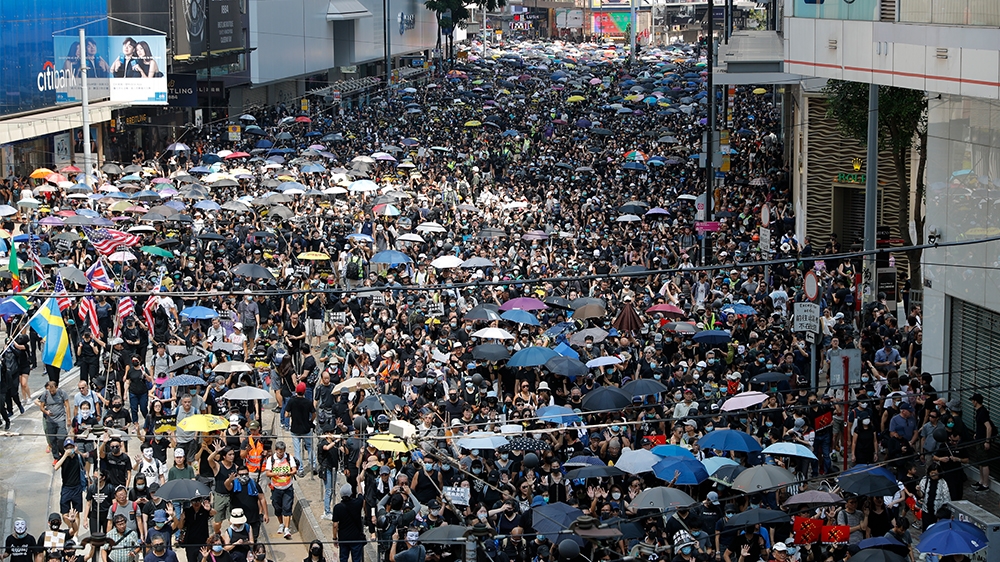Hong Kong prepares for protests as Beijing parades military might
Hong Kong protesters determined to press home their demands as Beijing celebrates 70 years of the People’s Republic.

Hong Kong, China – As Beijing celebrated the 70th anniversary of the founding of the People’s Republic of China with a large military parade on Tuesday, 2,000 kilometres (1,243 miles) to the south, the city of Hong Kong has ground to a halt.
Major shopping centres were closed for the day in anticipation of more clashes between police and protesters, there was also no sign of the mainland Chinese tourists who used to flock to the territory for their October 1 week-long holiday.
Keep reading
list of 4 itemsHong Kong’s new security law comes into force amid human rights concerns
Hong Kong passes tough new national security law
What is Article 23, Hong Kong’s new draconian national security law?
The detritus of last weekend’s skirmishes – mangled umbrellas, discarded face masks, torn placards – has been largely swept away and the government deployed a contingent of cleaners to scrape clean the Lennon Walls – mosaics of protest flyers put up across the city – in many neighbourhoods.
Earlier in the morning, government officials and their guests watched the traditional flag-raising ceremony inside the convention centre at Golden Bauhinia Square.
Absent were Chief Executive Carrie Lam and her 200-plus entourage of legislators, ministers and other top officials who had joined the celebrations in Beijing.
Protesters have branded Tuesday a “national day of mourning”.
While police banned a proposed march through the city centre, thousands of protesters began to walk anyway, gathering at points around the city from about midday.
“I hope I can see the end of the Communist rule in my lifetime,” Ben Li, 43, said, adding that the 70-year milestone meant China had become the world’s longest surviving authoritarian government.
Ash Chen, 44, who works in finance and is a former civil servant, joked he was on a “shopping trip” because the march had not been authorised.
“I can’t see the end game as the government is unlikely to meet all our demands,” he said. “I’ll persist till then.”

Growing demands
The metro operator shut down about 20 stations as a pre-emptive measure, to avoid repeats of past incidents when riot police entered stations and pepper-sprayed passengers on a stalled train.
In some neighbourhoods away from the city centre, there were reports the police used tear gas to disperse demonstrators who set fires and blocked streets.
Over the past 16 weeks, Hong Kong has been in the throes of anti-government protests – triggered by a proposed bill that would have allowed the extradition of accused individuals to the mainland for trial – that have since morphed into a wider movement for democracy.
Demonstrators are also demanding an independent inquiry into alleged police brutality in suppressing the protests, blanket amnesty for all those charged with offences stemming from participating in demonstrations, and a retraction of police claims that protesters are guilty of rioting – a charge that carries a heavy prison sentence.
The protesters also want to be able to elect Hong Kong’s top leader and all its legislators.

‘Hard feelings’
A former British colony, Hong Kong was returned to China in 1997 under a ‘one country, two systems’ framework, which guaranteed Hong Kong people rights and freedoms largely absent in mainland China.
However, in recent years, critics say Beijing has increasingly interfered in the territory and resentments have bubbled to the surface.
In some neighbourhoods on Tuesday, demonstrators scattered paper offerings meant for the deceased in front of businesses operated by the Chinese government, such as China Travel Services.
Over the past 10 years, the number of Hong Kongers who took pride in being Chinese has gone down significantly, according to a survey conducted in June by the University of Hong Kong’s Public Opinion Programme.
The survey showed a record high number of respondents describing themselves as Hong Kongers and a record low of those identifying themselves as Chinese citizens.
Among those under age 30, the percentage of respondents identifying as Chinese is in the single digits.
“Young people know only a strong China so they can’t accept the cognitive dissonance of China being a complicated developing country full of contradictions,” Stephen Chiu, a sociologist at the Education University of Hong Kong who has researched the city’s youth and social movements, told Al Jazeera.
“They can’t really reckon with China, and their mixed feelings become hard feelings. We’re seeing more and more of them initiated into political activism against China.”
